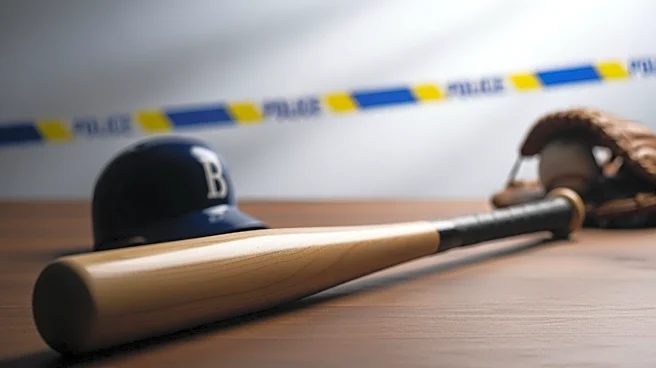What's Happening?
Philadelphia Phillies president of baseball operations Dave Dombrowski has expressed uncertainty about Bryce Harper's ability to return to his elite form. Harper, who recently turned 33, had a challenging
season with a .844 OPS, his lowest since 2016, and a .261 average, his worst since 2019. Despite missing a month due to a wrist injury, Harper's performance in the postseason was underwhelming, contributing to the Phillies' elimination by the Dodgers. Dombrowski acknowledged Harper's All-Star caliber but questioned whether he could regain his status as one of baseball's top players.
Why It's Important?
Harper's performance is crucial to the Phillies' success, as he is a key player with six years remaining on his 13-year, $330 million contract. His ability to return to elite form could significantly impact the team's postseason prospects and overall competitiveness. The Phillies face decisions regarding their roster, including several key free agents, and Harper's performance will be a central factor in their strategic planning. The team's ability to support Harper and address his challenges will be vital in maintaining their competitive edge.
What's Next?
The Phillies will focus on supporting Harper's development and addressing roster needs in the offseason. Dombrowski plans to work on a one-year extension for manager Rob Thomson and maintain the current coaching staff. The team will also navigate free agency decisions, with several players potentially leaving. Harper's performance and the team's strategic moves will be closely monitored as they aim to improve their postseason outcomes.
Beyond the Headlines
Harper's situation highlights the pressures faced by high-profile athletes and the impact of injuries on performance. It raises questions about player management, support systems, and the balance between individual and team success. The Phillies' approach to Harper's challenges may offer insights into broader trends in athlete management and team dynamics within professional sports.








